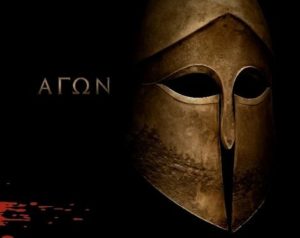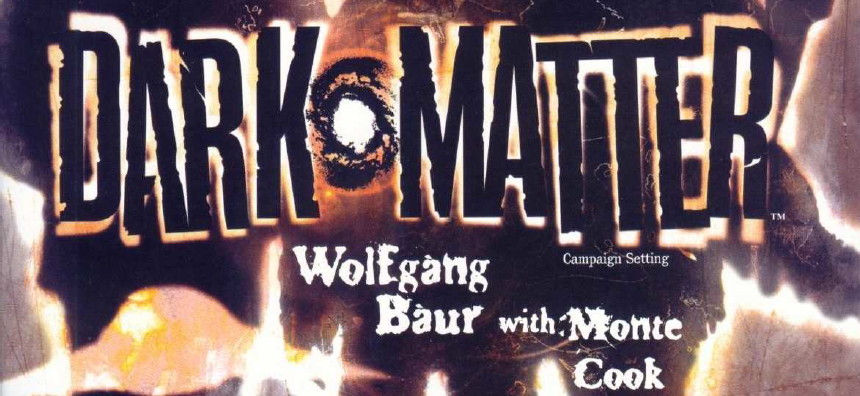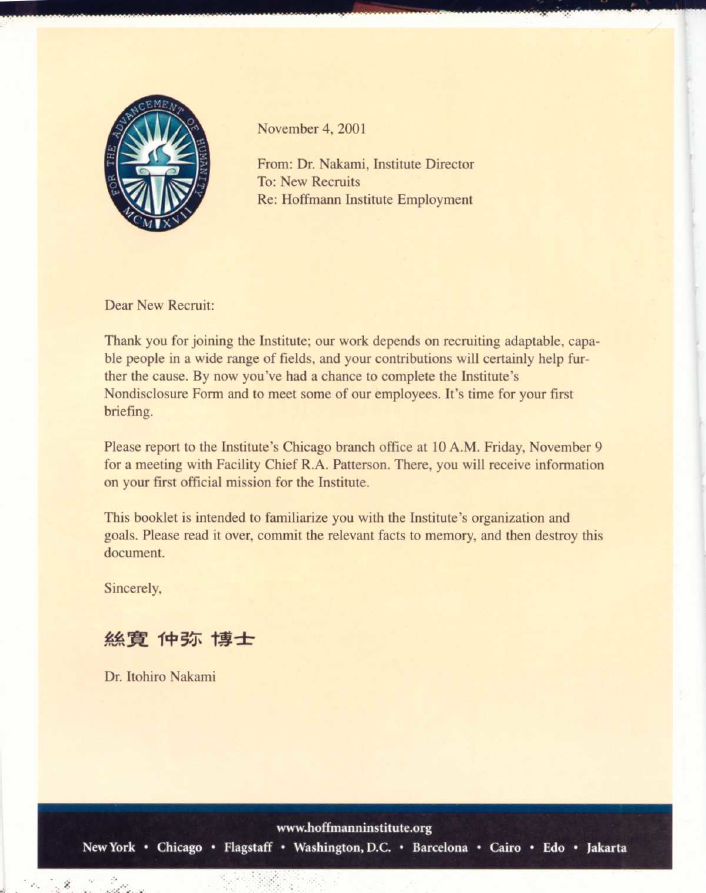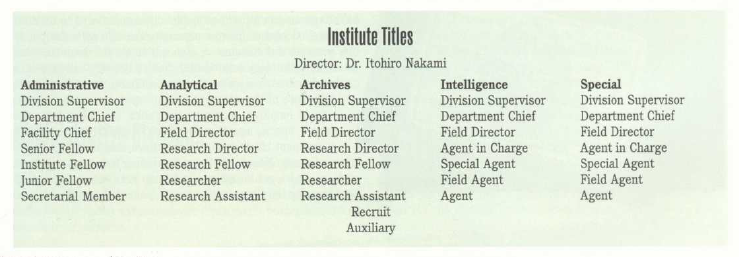|
marshmallow creep posted:Lets have some ice witches take on the murder Canadians. It'd just end up getting settled with hockey.
|
|
|
|

|
| # ? Apr 19, 2024 12:18 |
|
[quote="Angrymog" post="475974853"] Here's a brief overview of Agon, a competitive RPG.  This sounds really interesting. Is the game more geared towards one shots or campaign play?
|
|
|
|
Inescapable Duck posted:Sounds like an Ice Witch could wreck poo poo further up in the Chaos Wastes, given they're literally the polar regions. Has its own problems, though. Maybe? They get their magic from Kislev, not the cold, the cold just makes them closer to Kislev when they're outside it. They'd have the same problem everyone else does way up north: too much Dhar (raw, congealed Evil magic) around.
|
|
|
|
The Guide to Glorantha: We Tried That Already The Doraddi are a dark-skinned people, with brown or black hair. A small minority, despised by the rest, have skin that ranges from slightly bluish to slate blue. The Doraddi exist in four major divisions, which vary in marriage custom, diet and dialect: the Jolar, the Kothar, the Tarien and the rather more recent Kresh. The Kresh are fairly unique - they live in massive, heavily decorated wagons with solid wheels, which are dragged across the plain by many men. The Kresh trade or extort food from the other Doraddi in exchange for trinkets, rare magic and the promise of further visits. The wagons never remain in one place for more than thirty days at the most, and often they never stop moving, conducting all trade while traveling. The wagons contain all Kresh material possessions, particularly metal goods brought in from the north. Women run the wagons and lead, while men defend and move them. The Doraddi are in general a nomadic people. They avoid cities and claim to have the most superior culture in the world, as demonstrated through many anecdotes which tell why civilization is a bad idea. They move often, generally abandoning their old living site and moving everything. They practice horticulture and hoe-farming, focusing on root vegetable gardens which they abandon yearly, and hunting and gathering to supplement this, with gardening being more relied on in wetter areas and hunting more in the drier ones in the west. They travel often, and even have a deity of wanderlust. Families will leave a site when kings anger them, when their gardens fail or when they hear of a celebration they wish to attend elsewhere. Men will travel between camps seeking work, and ancient travel routes are used seasonally by entire wandering families as well as common travellers such as storytellers, artisans and shamans. The Doraddi have no beasts of burden or riding animals, as their part of Pamaltela lacks anything in the way of grass-like plants. However, they do raise dogs both as pets and hunters, and they raise birds for food and entertainment, as well as small pigs and the Tanuku, a sort of milk-giving antelope. Their wealth is always in simple forms and, due to the frequent moves, rarely accumulates heavily. They do not use clay vessels, and while they will admire them from afar, consider them far too heavy to be of practical use, instead favoring woven baskets or hollowed gourds for all purposes. Doraddi society is fairly primitive, and there is little distinction in social class save for material wealth. A King may be in charge of hundreds or thousands of followers, but will dress, eat and live no differently than any other member of their settlement. The only real class-based distinction is slavery. Doraddi groups range in size from a small band of travelers to a somewhat more stratified chiefdom, ruled by a King. Only around half of the entire Doraddi population, estimated to be about 3.3 million, has any permanent leadership, however. The rest wander between kingdoms. The main social unit is the extended family, centered on a group of women who are usually blood-related. These women collectively own the group's tents, huts, livestock and other property. Their children, husbands and lovers live in their households, with boys usually staying with their sisters or mothers until they can marry or join a men's society. Past this family unit, lineage is also considered important. Every family can trace its lineage through the female line to an ancestral mother known as the First Drinker, who is associated with a special plant. Members of a common lineage will recognize each other as kin for purposes of friendship, support, sex and marriage, and lineage often affects what divine cults a person can join. The Kings center their chiefdoms on oases and river basins, organizing their rule around their royal family. The closer one is to the king's lineage, the more influence one has locally. People in a kingdom are divided into three types - citizens (who have clear responsibilities and rights), visitors (who have limited rights) and slaves (who have none, and are usually war captives). The king is selected by the women, but must be from the royal lineage. The women can, at any time, dismiss the king...except among the Tarien, who appoint kings for life. There are several lineages dedicated to producing only royals in order to unify other lineages and families, and some kingdoms have been held by the same lineage since the beginning of known Doraddi history. The Kresh are an exception - they have no kings. Rather, the Kresh wagons are ruled by matriarchs, who know how to make the wagons and who never step on solid ground. The primary virtues of the Doraddi are trust, modesty, sharing and respect for elders. Betraying the trust of your community or obligations is essentially destroying the relationship you betrayed. Modesty is encouraged, and those of skill are expected not to make their superiority obvious and should never tell others what to do. All social interaction is built on sharing, and if you are seen to have something and someone who does not have it requests it, you are expected to give it freely, without any immediate expectation of reciprocity or return. Almost all property is owned by women, and they wield great power politically. A family's grandmother determines where they live, and several kingdoms have fallen when the women decide to take their families and leave. Men can only own specific men-things - weapons, ritual clothes and, by tradition, anything carried on the man's back. Men serve as administrators, defenders and caretakers. Their marriage customs are all fairly standard, except among the Arbonnen, who are strict monogamists that practice marriage of young to middle age. A young man will marry an older woman and remain with her until she retires to an oasis settlement, at which point he, now middle-aged, will marry a young woman, and the cycle will repeat. The Doraddi do not go in for complex clothing or housing, preferring simplicity and function over appearance, due to the kind weather of the area. They wear minimal clothing except when the weather requires it, and mostly live in easily carried tents, except in oasis kingdoms, which typically have more permanent wooden structures. Furniture is rare, with even simple stools kept only by kings and great shamans. The Doraddi language family is known as Arbennen, which contains four languages - Arbennen itself, Doraddik, Kresh and Tarint, all of which are pretty closely related. There is no written form. Doraddi law is simple and informal, focused on resolving disputes before they become violent. Generally, when a conflict cannot be resolved, someone just leaves to join another group, ideally of the same lineage. Soft social controls are also used - gossip, ridicule, ostracism, public debates and so on, to help form group consensus. Doraddi combat comes in two types - ritual combat (sometimes unarmed) and plunder war. Ritual combats are usually strictly defined in terms of victory condition and reward. Warfare is mainly practiced between tribal groups, over things like transgression of sacred rites, food theft, or tradition. Warfare mainly comes in three kinds. The Old Men's War has both sides gather and yell insults at each other, and whoever has the larger group at the end of the day wins. The Hero's War is duels between individuals or teams of champions. Ancient Warfare is raiding, ambush and set battles, and is heavily frowned on.  A Kresh Matriarch (left) and Arbennan nomad (right) The Doraddi follow the Pamalt pantheon, ruled over by Pamalt and a council of varying other gods. Pamalt is the King of the Pamaltelan gods - not the strongest, most powerful, cleverest or most magical god, but the god who best knows and understands the others he rules. He commands the Earth powers, and he has no peers. Other gods can be allies, foes or subjects, but never equals. Aleshmara is one of the women's goddesses, the Grandmother, Earth Witch and Owner of Things. The other major women's goddess is Faranar, the Earth Mother, Council Speaker, Gatherer and Curser. Noruma is the Great Shaman, who made Fire and brought the Earthmaker back from the dead as the Great Horned Serpent Amuron. Nyanka is the goddess of Good Water, Waterbearer, Childbirth and Pathways. Minor gods include Artmal the Old, Balumbasta the Firebearer, Bolongo the Trickster, Cronisper the Sky Father, Jmijie the Wanderer, Keraun the Wind Goddess, Rasout the Hunter, Sikkanos the Bad Wind, Vangono the War God, Varama the Sun God, Veldara the Blue Moon and Yanmorla the Earth Grandmother. Doraddi myth claims that the Old Gods witnessed the creation of the world by Langamul the Earthmaker, who woke Pamalt and the others and then was killed by Bolongo and sent to the Spirit World. In the Storm Age, the blue-skinned Artmali people made cities, conquered the world and sacrificed to gods, and so became degenerates and fell to Chaos, breeding with all manner of beast and allowing illness to fester where had been clean water and evil slimes where there had been dryness. Pamalt assembled his council and performed the Great Spirit Trick, bringing the Great Horned Spirit to life and tilting the sky to make it lurch. A great flood of burning sky fell upon the lands of the Artmali, destroying them and their Chaos shrines. Pamalt put the son of Balambasta, Varama the New Sun, into the sky, and ever after, Pamalt's people have lived in peace, so long as they remain on the Right Footpath. Doraddi religion is primarily shamanic, but has several hereditary priesthoods to specific gods or sites. The greatest magicians are shamans who intervene in the Spirit World, liaison between spirit and people. Each has different methods to do this, which are usually simple, always very practical and very sincere, which let them empower others to also intercede with spirits. The High Shamanic Ideal is that one trains their body, integrates the right spirits into one's shamanic self, and is young and wise forever. In practice, shamans are mostly busy helping people with everyday hostile spirit problems and helping the community survive with aid of good spirits. Physical health is vital to shamanic practice, and anything that harms you too much is to be avoided, especially remaining overly intoxicated, misusing spirits or sacrificing to gods.  Next time: The Praxian riders
|
|
|
|
Young Freud posted:It also uses the Twilight 2000 system, with all it's flaws. Granted, it's 2.2 where your skill and strength at least have an effect on automatic fire and not a constant probability per shot that gave high ROF weapons better chances to hit than aimed fire. Also, giant lists of language trees that include Soviet Nationalities. Not former Soviet, mind you considering that , Soviet. Mind you, my copy is the second edition from 1998, I'm not sure if the third edition corrected that. Dark Conspiracy is set during a slow motion apocalypse. The world is completely hosed and everybody is definitely gonna die from this extra-dimensional bullshit, but it's not gonna be quick. It'll take a few years, maybe a decade, but yup; everybody is gonna die. T2K2.2 is not a terrible system, especially compared to the 1.0 version, and the world is definitely interesting enough. I wish it had gone more into some of the extra-dimensional intelligences, like Fiddleback or Baron Someday though.
|
|
|
Mors Rattus posted:The Guide to Glorantha: We Tried That Already
|
|
|
|
|
I'll be honest, I think that might be intentional but I can't be sure.
|
|
|
|
Zereth posted:Is it just me or does the answer to question 2 there not... make any sense? It doesn't seem to be a response to the question asked, for one. It doesn't make sense unless you read into it pretty heavily. The thing they tried already is claiming something is one thing when it's clearly another thing. You can't eat a shield and a man can't have a son, only women have those... I think. This stuff is written by an anthropologist and it seems he likes to include some misunderstanding where the interviewer stands in from the reader, with their cultural assumptions and categories sometimes just not matching those of the informant.
|
|
|
|
Young Freud posted:Just looking at the Civilian Occupations your character could come from, we have a motley crew of average Joes like "Farmer", "Factory Worker", "Public Employee" and "Truck Driver"; underclass characters like "Ganger", "Homeless", and "Prole"; the skilled professions that most PCs will come from like "Professor", "Journalist", "Law Enforcement" and "Mercenary"; high class elites like "Professional Athlete", "Entertainer", "Nomenklatura", and "Astronaut" (although astronauts are more like space janitors in Dark Conspiracy); then just loving off-the-wall poo poo like "Cyborg Escapee", "Renegade E.T.", "Psychic Test Subject", "Alien Sorcerer", and "Rogue Android". And because it uses that Twilight 2000 character generation system, all of these plus military are available to the character as 4-year terms in your pre-game career tree, so you could totally make hosed-up characters by combining these together. I don't know if later versions changed it any, but I remember distinctly that the ideal character is always 40 years old, because that gives as many skills as possible without risking attribute penalties.
|
|
|
|
Humbug Scoolbus posted:Dark Conspiracy is set during a slow motion apocalypse. The world is completely hosed and everybody is definitely gonna die from this extra-dimensional bullshit, but it's not gonna be quick. It'll take a few years, maybe a decade, but yup; everybody is gonna die. DC was also a rare example of RPGs getting ahead of pop-culture. It was a near-future full of grey aliens, coverups, conspiracies, and weird monsters - and it came out two years before the first episode of X-Files. This was actually the second time GDW had managed that (the first was the seminal Space:1889 game and setting, published in 1988 and prefiguring the whole steampunk era), which was particularly impressive given that GDW was located in the middle of Indiana and had been founded and was run by old hex-and-counter wargamers and milsim enthusiasts. Basically, about as far from the cutting edge of nerd culture as can be imagined.
|
|
|
|
Alien Rope Burn posted:I don't know if later versions changed it any, but I remember distinctly that the ideal character is always 40 years old, because that gives as many skills as possible without risking attribute penalties.
|
|
|
|
35 was the perfect age in Traveler, three or four tours. It's the only rolling generation system I like, mostly because I have no idea how you'd translate its flavor to point-buy.
|
|
|
|
LongDarkNight posted:[quote="Angrymog" post="475974853"] A sort of episodic campaign I guess? There are rules for replacing your hero when you fill up your Fate track (a mortal has 16 blocks to fill, and you automatically get one when you finish a quest, when you're defeated (fill up the 6th wound level) or attempt to Defy the Gods. You can choose to gain a fate in order to avoid all damage from an attack, or to remove 4 levels of impairement.
|
|
|
|
FMguru posted:DC launched with a trilogy of tie-in novels (ah, the early 90s) by Mike Stackpole that were actually quite good, and laid out a metaplot for the setting that the game did almost nothing with. I have those novels still. That's where I saw Fiddleback and Baron Someday and they referred to a bunch more of these intelligences. Frank Chadwick was the guy who designed the T2K, 1889, and 2300AD systems along with Les Smith, and also Loren Wiseman who died this last January.
|
|
|
|
Young Freud posted:Just looking at the Civilian Occupations your character could come from, we have a motley crew of average Joes like "Farmer", "Factory Worker", "Public Employee" and "Truck Driver"; underclass characters like "Ganger", "Homeless", ... "Cyborg Escapee", "Renegade E.T.", "Psychic Test Subject", "Alien Sorcerer", and "Rogue Android". And because it uses that Twilight 2000 character generation system, all of these plus military are available to the character as 4-year terms in your pre-game career tree, so you could totally make hosed-up characters by combining these together. Playing an Alien Sorcerer who's now a homeless bum, a Renegade E.T. that's a truck driver or a psychic test subject that's now a farmer sound like AMAZING combos to me, at least for comedy.
|
|
|
|
Mr. Prokosch posted:It doesn't make sense unless you read into it pretty heavily. The thing they tried already is claiming something is one thing when it's clearly another thing. You can't eat a shield and a man can't have a son, only women have those... I think. This stuff is written by an anthropologist and it seems he likes to include some misunderstanding where the interviewer stands in from the reader, with their cultural assumptions and categories sometimes just not matching those of the informant. This kind of gets into my major complaint with Glorantha*, which is that nearly all the high-level-canon material tends to take the cultures in the setting at their own valuation of themselves. People on forums occasionally talk about how the Orlanthi, who are all about "freedom over all" don't actually have a very free society because in practice the principle is "everybody is free to do whatever they can force everybody else to let them get away with," or the like, but that very rarely pops up in the actual books. Similarly, the stuff in the books about the Lunar Empire tends to describe them as an enlightened pluralistic society who harmoniously join all beliefs into a syncretistic modern whole, and forget about them being an empire fueled by bloody conquest. It doesn't forget that they have an army of bloody conquest, and a soul-eating demon that they regularly feed people to, but the Lunars just kind of politely ignore those things and so the book is polite too. It's from the school of anthropology where "we examined this culture and determined that they're a bunch of lovely hypocrites" is not something you say. Like, the description of the Lunar Emperor says that his only concern is the happiness of his people, which is obviously bullshit, but we don't actually know anything else about him. Except, I read one of the old Issaries books that aren't canon anymore, and it said something very similar, except that in that case the book made it clear that what the description actually meant was "Moonson is high as balls at 100% of all times." * Well, that and the fact that everything they publish revolves around goddamned Argrath and that basically every single important historical event in Glorantha, without exception, was the result of somebody pulling out an unprecedented feat of magic that suddenly changes everything.
|
|
|
|
Doraddi warfare is hilarious. Loving the concept of Old Man's War.
|
|
|
|
Kavak posted:35 was the perfect age in Traveler, three or four tours. It's the only rolling generation system I like, mostly because I have no idea how you'd translate its flavor to point-buy. That's also a problem with R. Talsorian's LifePath. It can help generate some interesting characters, but they can also be heavily unbalanced. The closest I can imagine of how to put that into a point-buy system is maybe have the various character perks and flaws randomized (since that's really what those systems are, just a perks and flaws system that's been randomized). I actually contemplated doing that for mutants in the OpenD6 game I had been developing, with a each perk or flaw being a roll on a corresponding table. The template would start with a two or three positive mutations and a negative mutation to begin with, with additional mutations being purchased on a one positive, one negative basis. PurpleXVI posted:Playing an Alien Sorcerer who's now a homeless bum, a Renegade E.T. that's a truck driver or a psychic test subject that's now a farmer sound like AMAZING combos to me, at least for comedy. I had thought instantly of making President Dwayne Elizondo Mountain Dew Herbert Camacho, since you could take Athlete-Entertainer-Politician, with maybe a couple tours as a Navy SEAL for more outrageous flavor.
|
|
|
|
I just thought of trying to make Fee Carmichael. If astronauts are just space janitors, might as well be the world's most badass space janitor, you know?
|
|
|
|
chiasaur11 posted:I just thought of trying to make Fee Carmichael. I'm not even kidding about the "space janitor" stuff...  The real interesting stuff is that there's a whole bunch of stuff regarding space, since you're dealing with aliens and such, so being an astronaut does pay off in some ways. Young Freud fucked around with this message at 22:35 on Sep 3, 2017 |
|
|
|
Space janitors? https://www.youtube.com/watch?v=CZ-OyT4ivkM
|
|
|
|
Rand Brittain posted:It's from the school of anthropology where "we examined this culture and determined that they're a bunch of lovely hypocrites" is not something you say. Thats. That's all legitimate schools of anthropology my dude.
|
|
|
|
 Chapter 2: Welcome to the Hoffmann Institute  The standard Dark*Matter campaign assumes that the heroes are members or associates of the Hoffmann Institute (HI going forward), a private organization dedicated to investigating paranormal activities. Your players don't have to work for this group, but literally all of the player facing material and most of the GM behind-the-scenes info assumes that your group is working for HI, so much of the material as it is presented is fairly useless if you aren't going to play with this default assumption. HI was founded in 1917 with the goal of furthering scientific exploration for the human species. Over the course of the 20th Century, HI notices that the frequency of paranormal incidents is steadily rising, and the overall purpose and direction of HI switches track to accommodate this weird new world. HI doesn't want fame or notoriety for its actions and aggressively maintains a public persona of another boring corporate think tank that solicits grants and funding for innocuous and vague scientific research. Case in point, all of the HI sites and campuses are distinguished mostly by their low profile, they look like perfectly boring corporate office space in completely unremarkable commercial parks. As a matter of fact, HI keeps such a low profile that many people don't even realize they're being considered for employment until they're approached for their first mission. The source of where HI gets the necessary funding to run a trans-global conspiracy is something of an unknown even among the rank and file. On the outside, people just assume that HI is any other think tank and that they pursue grants and sell their services and etc. Agents on the inside know that's not entirely true, but agents that repeatedly try to nail down where the funding for equipment and travel and other expenses comes from get met with either uncomfortable silence or "temporary reassignment" to some HI post in the middle of nowhere (for some reason Branson, Missouri is a favorite punishment location). In reality, HI's funding comes from a vast network of government slush funds, riders on pork bills, contribution from CIA accounts that are strictly off-the-record, and even the United Nations provides a non-trivial portion of the annual budget. HI agents have infiltrated various support positions within the United Nations, and some members of the UN have been saved by HI's efforts and decided to pay them back.  So how do you get a job offer from HI? They typically target specific individuals that have already had some kind of encounter with the paranormal and have survived through their own competence (or not). People that have manifested paranormal abilities, or encountered a monstrous creature, or experienced an alien abduction always make the top of the recruitment rosters. First, HI runs a complete background check on a potential recruit to get a feel for their muster. Felony convictions aren't necessarily a hard fail, especially if HI has a mission that requires someone with connections to underworld elements or other fringe groups. Often, HI just needs someone that won't completely lose their poo poo when things get weird. In general, HI just wants to make sure there's no glaring red flags in someone's personal history that could turn them into a liability for the institute. Assuming you pass the background check (and people that fail won't ever even know they were being considered) you get approached by an agent from the closest HI branch office requesting your assistance with a (relatively) minor task. They might see how cooperative you are when approached for some kind of specialized information or knowledge to which you have access, or ask you to perform very basic recon & surveillance, but they might also immediately put you on blast and ask you to shelter a wounded agent or help dispose of evidence because of your professional connections. Up to this point, the contact likely hasn't revealed that they work for HI; part of the test is gauging your reaction when asked to perform unusual tasks by unfamiliar people. Provided you successfully leap both those hurdles, HI will contact you in an official capacity and recruit you for a formal mission. In this case, you're going to be paired with 2 to 4 other initiates (wow, almost exactly the size of your average PC party!) and will have an official point of contact with an HI handler (weird, it's just like the relationship PCs have with their GM!) who will provide your group with a training mission that has a low potential for danger, like a milk run to produce some kind of basic research or information. Assuming your group doesn't poo poo the bed and performs the task to the satisfaction of their handler, you're all given official, written job offers. Potential new recruits that gently caress up this mission might get one more go around (depending on how badly they poo poo the bed the first time) but the book is adamant that nobody gets a third try. HI has an employee handbook that covers the expected rules of conduct. In general, agents are expected to keep their activities out of the public eye; HI isn't a real power player at the global level yet, and isn't even an official government sanctioned entity within the countries where it maintains campuses. HI is still also primarily oriented around research and investigation, which leaves them ill equipped to face down enemy organizations with a more militaristic bent. At the same time, all reasonable and good-faith efforts should be made to provide HI with clear, complete records, accounts, and documentation of unusual events. In practice, the good-faith clause has been interpreted by agents as permission to violate the law of the land as long as they keep HI's existence quiet. In the past, agents have used the good-faith clause to justify things like simple bribery, non-consensual psionic intrusions, trespassing, theft, extortion, and even murder. Although extreme actions are typically only sanctioned when HI is in danger of being exposed to its enemies, the recent attitude among the directors is that the situation on Earth is getting much worse and too quickly, and they're willing to give agents greater and greater leeway in how they complete a mission. Hierarchy  HI has an internal corporate hierarchy that's not unlike other quasi-military clandestine enterprises. I'm not going to list out all of the language for each rank because most of it is just filler and it's rarely going to come up in the course of a game. I will point out that HI Special Division operates their organization in cells, where the person at a given level knows exactly how many people report to him/her and how many additional people report to his/her subordinates, but the only up-stream interaction any given person has is with their direct report; any agent is also unlikely to know how many other agents of the same rank exist in parallel. In other words, an Agent in Charge knows all of the Special Agents, Field Agents, and Agents that report directly to him/her, but the Agent in Charge only knows who their Field Director is, and isn't likely to have information about any other Agents in Charge either. The Auxiliary rank include professionals that provide on-call or as-needed services to HI but aren't employees. They can't expect much from HI except for direct compensation for whatever task they're asked to do (no equipment requisitions, no training, no security clearance) but they're also much less likely to get targeted by another party looking to run espionage or take revenge against HI. Security Clearances Nothing exciting here. HI ranks clearance levels as Public, Confidential, Classified, Secret, Top Secret, and Eyes Only. Your ability to request sensitive information roughly rises as you climb the HI hierarchy, although Eyes-Only info contains items so sensitive that your request won't even be considered unless another employee of your rank or higher co-signs the request. Institute Site Security  There's several paragraphs that go into intricate detail about the general security level of HI campuses, but it all boils down to: HI site security is top of the line, using the highest quality contemporary security mechanisms as well as several that have been "borrowed" from alien tech or supernatural events. HI even has a rudimentary AI that links all of the major HI campuses together named OSIRS (but supposedly everyone pronounces it like Osiris). The AI is rudimentary right now, but only the directors at the top of the hierarchy know where it came from, and the GM is free to develop OSIRS as much or as little as the campaign needs. Is OSIRS a damaged AI that was recovered from an alien vessel, or a supernatural intelligence that masquerades as software? Who knows? In true RPG fashion, HI security is rock solid until it isn't; the GM is encouraged not to worry about the logistics too hard if they need an enemy force to infiltrate or compromise a location. Compensation & Benefits Entry level agents can expect to earn roughly $48k/yr, with the possibility of bonus income or merit increases if they perform a mission particularly well or recover alien technology or etc. As you move up the ranks, HI employees have the potential to steadily increase their salary, with Department Chiefs and above making low to mid six figure salaries; accordingly positions near the top of the hierarchy have extremely low levels of turnover. HI employees are offered fairly generous retirement packages, but the catch is that very few employees live long enough to cash in those benefits; agents tend to die young. HI also offers skilled trainers and coaches for almost any broad or specialty skill you'd like to have your hero learn, at least up to rank 3. HI specifically trains all of their employees in the Unarmed Attack, Ranged Weapons, and Investigate broad skills, and if you join the agency without proficiency in those skills, they'll be the first things you learn. HI also retains with legal services of Marshall, Wickham, and Vanderdossen to provide legal advice and services to institute operatives. The firm is renowned for getting cases to settle out of court, in no small part because the lawyers employed by the firm aren't afraid to utilize bribery, extortion, and other unsavory negotiating tactics, as long as they can maintain legal plausible deniability. Marshall, Wickham, and Vanderdossen are well versed in extricating agents from jails and getting records expunged, but it doesn't happen overnight, so agents are advised to do their very best to stay under the radar of police or other authorities and keep their asses out of jail in the first place. Marshall, Wickham, and Vanderdossen aren't foolish; they'll defend an agent as a client of HI to the best of their abilities, but they're not afraid to decline representing agents that become repeat offenders, or agents that committed brazen crimes that don't leave their culpability within a reasonable amount of doubt. Come back next time for Chapter 3: Institute Divisions, Agents Careers, Skills, Perks, and Flaws! Freaking Crumbum fucked around with this message at 00:03 on Sep 4, 2017 |
|
|
|
Mr. Maltose posted:Thats. That's all legitimate schools of anthropology my dude. Doesn't that mean that anthropology fails when applied to people who are super-hypocritical about their cultural values? I mean, you're basically right, but I think you can take it too far. Applying the approach Glorantha takes to modern America would result in an essay about a shining city on a hill, beloved by the world it leads, where people love liberty, apple pie, and baseball, and look forward to a glorious future under their new leader elected by the will of the people, who promises to make the country great again.
|
|
|
|
Only if the anthropologist didn't look at the whole picture.
|
|
|
|
Moonson is, indeed, high as balls most of the time. In fact, his parties are so amazing that they can cause people to break through to intense Mystical enlightenment. They're also about the only thing that keeps the incredibly powerful demigods at the head of Lunar Empire interested and not off tearing up the Empire with internal wars.
|
|
|
|
Rand Brittain posted:Doesn't that mean that anthropology fails when applied to people who are super-hypocritical about their cultural values? Hypocrisy is a cultural value and judging another culture with your culture's values is the number one don't of the entire discipline so that's not a failure. EDIT: Also, being exiled to Branson would be the loving worst punishment. You're either in the off season and stuck in the middle of Missouri in the 90s or it's tourist time and you're surrounded by the kind of people who willing go to Vegas as designed by Ned Flanders. Mr. Maltose fucked around with this message at 01:01 on Sep 4, 2017 |
|
|
|
Mr. Maltose posted:Hypocrisy is a cultural value and judging another culture with your culture's values is the number one don't of the entire discipline so that's not a failure. If I didn't know that writing off an entire discipline because you don't get it at first glance was dumb, I'd say "that's dumb." Would you like to talk about this in a little more detail? I'm very interested.
|
|
|
|
Judging culture and understanding culture are two different things and anthropology isn't about judging? I mean, I'm not sure how more in detail should be necessary here?
|
|
|
|
I am also not clear how observing, "this culture that says it's all about x also does this diametrically opposed thing y, e.g. culture that says it's about freedom for all also keeps slaves" is a personal cultural value. I mean all cultures are multifaceted and conflicted but surely you can point out when some stuff is at cross purposes without being judgemental.
|
|
|
|
The big problem is that judging other cultures by the values of your own culture is how people in history often arrive at scintillating insights like 'conquering these natives and forcing them to conform to our culture is actually us helping them because they're clearly doing it wrong right now'. It's a pretty huge cause of human suffering throughout history and probably shouldn't have a place in academic study of other cultures. EDIT: Obviously there are limits to this. For example, I wouldn't hesitate to call Saudi Arabia, a place where executions for sorcery are still carried out fairly frequently, a pretty lovely place. Saudi Arabia sucks rear end. But I'm also not doing an academic study on Saudi culture. If I was, it would be ridiculous to make blatant value judgements like that within the text itself. ZeroCount fucked around with this message at 02:14 on Sep 4, 2017 |
|
|
|
Typically speaking, an anthropologist rarely takes what the culture says purely at face value, but instead inspects what the culture says, how they act, and how those interact with each other, both from the viewpoint of an insider and an impartial viewer, if possible. Actions that are taken that seem to be in clear contravention of stated social mores need to be understood from the view of the people taking them. An explanation of the apparent contradiction is extremely valued. Frex, the Orlanthi value freedom, but can often use that freedom to bully and control others. Their explanation of this apparent contradiction is that there are socially acceptable ways to prevent this. A properly written and scathing poem can defeat force of arms. Proper faith and use of ritual can grant the strength to defend what is yours, even if you're a Barntarite rather than a warrior, because Barntar protects the hearth. Your family can and should help you, as well. Someone who does not take advantage of their avenues to gain vengeance and recover their freedom is choosing not to, from an Orlanthi perspective, and to a certain degree, due to the prevalence of god-magic, they aren't wholly wrong. Of course, from our perspective, we also recognize the restraining power of fear, the ability for the bullying Orlanthi to use those powers as well and the fact that some people just aren't equipped to exercise the methods available, but from an anthropological perspective, ideally, we erase our own cultural viewpoint and try to understand life from the inside. Whether there is a better way to live is not our concern, and should not be, because in judging and deciding these people are wrong, we bias our viewpoint and fail to accurately capture what we see.
|
|
|
|
EDIT: Mors explained it way more effectively.
Mr. Maltose fucked around with this message at 02:16 on Sep 4, 2017 |
|
|
|
Imagine if someone writing a lab report went on a lengthy digression on why they think erlenmeyer flasks are lovely and a pain to work with.
|
|
|
|
Okay, so basically "once you start judging you have strayed beyond the bounds of anthropology proper and into another discipline." That seems like a really limited take on the field, then—most books I've read on culture or history (and by most I mean all) had elements to their viewpoint that I'd consider at least implicitly critical of their subject matter. It's also really unhelpful for a game book, because it means that at best you have to read between the lines heavily, and at worst the book is actively collaborating to deceive you.
|
|
|
|
That is, by the way, the best part of The Old World Bestiary and I have no idea how I'm going to get it across. There are hidden little subplots in the viewpoint NPCs, including one who is actively lying to the reader the entire time (it does out him eventually) because part of the book is constructing the fluff of each critter by a common view, a scholar's view, and if it can speak, its own view of itself.
|
|
|
|
Night10194 posted:That is, by the way, the best part of The Old World Bestiary and I have no idea how I'm going to get it across. There are hidden little subplots in the viewpoint NPCs, including one who is actively lying to the reader the entire time (it does out him eventually) because part of the book is constructing the fluff of each critter by a common view, a scholar's view, and if it can speak, its own view of itself. The Eshin assassin is great. "Twice as much poison as you'd use for a human of equal size". "Warpstone powder in garlic paste base". "Warpstone dust, blown through a tube."
|
|
|
|
Interestingly one of the things the guy who turns out to be a hidden Chaos Cultist is saying is 'You should totally exterminate any community that produces a mutant, it's the only way to be sure, harden your hearts and do what's necessary.'
|
|
|
|
Night10194 posted:Interestingly one of the things the guy who turns out to be a hidden Chaos Cultist is saying is 'You should totally exterminate any community that produces a mutant, it's the only way to be sure, harden your hearts and do what's necessary.' That dude's cover is blown basically immediately, btw, in the Chaos cultist section.
|
|
|
|

|
| # ? Apr 19, 2024 12:18 |
|
Rand Brittain posted:Okay, so basically "once you start judging you have strayed beyond the bounds of anthropology proper and into another discipline." That's because humans cannot be completely impartial. Impartiality is a goal to work towards despite the fact it can never be fully reached. Also the idea that it's unfair to the player because you didn't label, for example, the monster bat that eats souls as bad is. It's certainly a stance to take I guess.
|
|
|




































